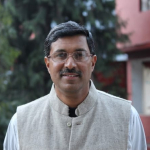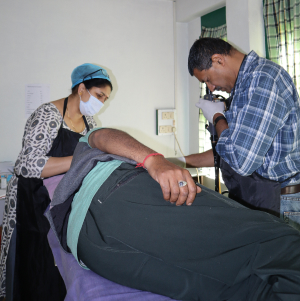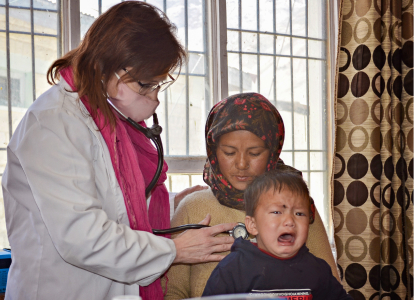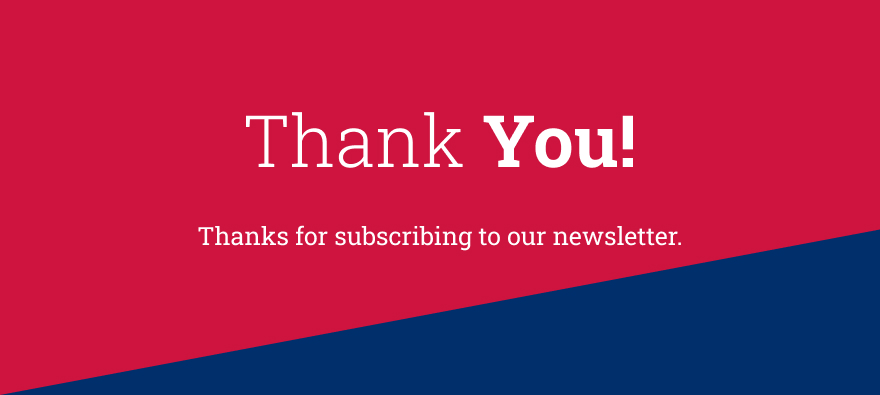Lady Willingdon Hospital (LWH)
Comprehensive and quality healthcare services


Current Impact
As on March 2024
500+
people screened through
health camps
80+
CT scans conducted

Geographical Focus
- Ladakh (Leh, Zanskar)
- Himachal Pradesh (Lahaul & Spiti, Chamba, Kullu, and Mandi)

Potential Impact
-
Screen
4000+
people through health camps -
Conduct
1000+
CT scans


With SAMRIDH’s support, Lady Willingdon Hospital is expanding healthcare services to remote areas of Ladakh and Himachal Pradesh, enhancing diagnostic capabilities to improve turnaround time and accuracy. SAMRIDH’s support catalyzes our mission to provide quality care at affordable prices, impacting lives and transforming healthcare infrastructure in the region.

Samridh support
With SAMRIDH’s financial support, LWH is expanding its diagnostic services by implementing a new CT scan machine and increasing community outreach efforts through healthcare camps in Kullu Valley. This initiative aims to provide comprehensive healthcare services to all residents, regardless of their ability to pay. SAMRIDH covers operational costs related to the CT scan machine and healthcare camps, including salaries, training, and electricity. By introducing the 32/16-slice CT scan machine, LWH will become the first provider in the region, reducing operational costs by 5% and minimizing the need for repeated scans. Additionally, SAMRIDH supports training for doctors and radiology technicians, enhancing scan efficiency and data analysis for better illness and accident management. LWH plans to sustain these services independently from the second year onwards, using income generated to cover expenses such as salaries, training, and equipment maintenance.
Only 30% of healthcare infrastructure serves ~70% of the rural population.[1]
Only 3,246 medical professionals against a requirement of 6,181 are available in the public health facilities of Himachal Pradesh.[2]
Only 1 out of 98 CHCs meets the minimum essential healthcare manpower standards in Himachal Pradesh as recommended by Indian Public Health Standards (IPHS).[3]
~10 – 15% of healthcare expenditure in India is attributed to diagnostic tests.[4]
With 1.4 Bn people across 29 states and 7 union territories, India’s diverse landscape presents significant challenges in healthcare delivery, especially in rural, semi-urban, tribal, and hilly regions. Himachal Pradesh, a predominantly hilly state, faces poor accessibility to healthcare infrastructure due to mountainous terrains, extreme weather conditions, and frequent landslides. Moreover, public health facilities lack sufficient medical professionals, healthcare infrastructure, diagnostic facilities, and essential healthcare standards, which impacts the quality of available healthcare services and leaves many underserved. These challenges combined result in prolonged travel, treatment delays, high expenses, and increased morbidity and mortality. Thus, establishing well-equipped, accessible, and affordable health facilities staffed by trained professionals is crucial to address this healthcare gap.
[1] Pritam Kumawat. 2024. “Bridging healthcare gaps: The impact of Point-of-Care diagnostics in India.” ETHealthworld.com, February 22, 2024.
[2] Mullick, Rohit. 2023. “ Short of staff, HP hospitals need dose of infrastructure.” The Times of India, April 8, 2023.
[3] Ibid
[4] Kumawat, Pritam. 2024. “ Bridging healthcare gaps: The impact of Point-of-Care diagnostics in India.” ETHealthworld.com, February 22, 2024.


Lady Willingdon Hospital (LWH), established in 1935, has been a reliable healthcare provider in Manali, serving the Kullu Valley community with quality and affordable medical services. With a 55-bed facility, LWH offers specialized medicine, surgery, obstetrics, and pediatric services, ensuring comprehensive healthcare for patients. Situated amidst the challenging terrain, LWH serves as the primary surgical facility in Manali, extending its services to patients from Kullu, Mandi, Lahaul-Spiti, and Chamba districts, overcoming geographical barriers. The facility ensures that individuals navigating challenging terrains to access healthcare receive quality and timely medical attention at minimal costs, effectively minimizing out-of-pocket expenses. Empanelled under the Ayushman Bharat and Himcare schemes, LWH provides cashless benefits to those in need, irrespective of their financial status. Committed to its philanthropic ethos, LWH allocates 30 to 35% of its earnings annually to charity and concessions for the underprivileged, upholding its mission to provide healthcare access to all, regardless of caste, creed, or circumstances.
Key Stakeholders


